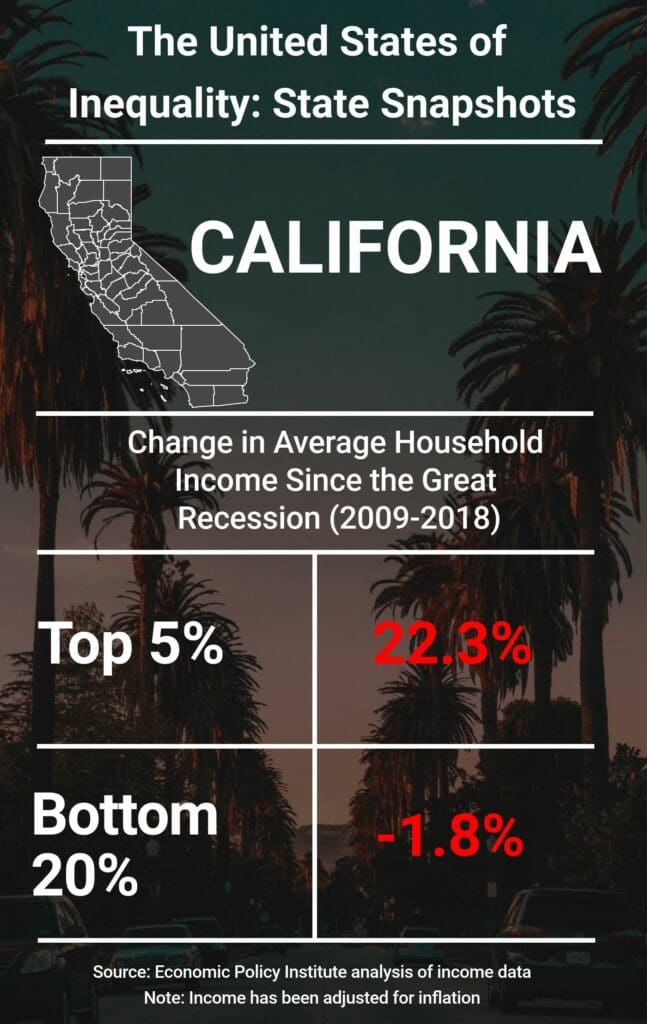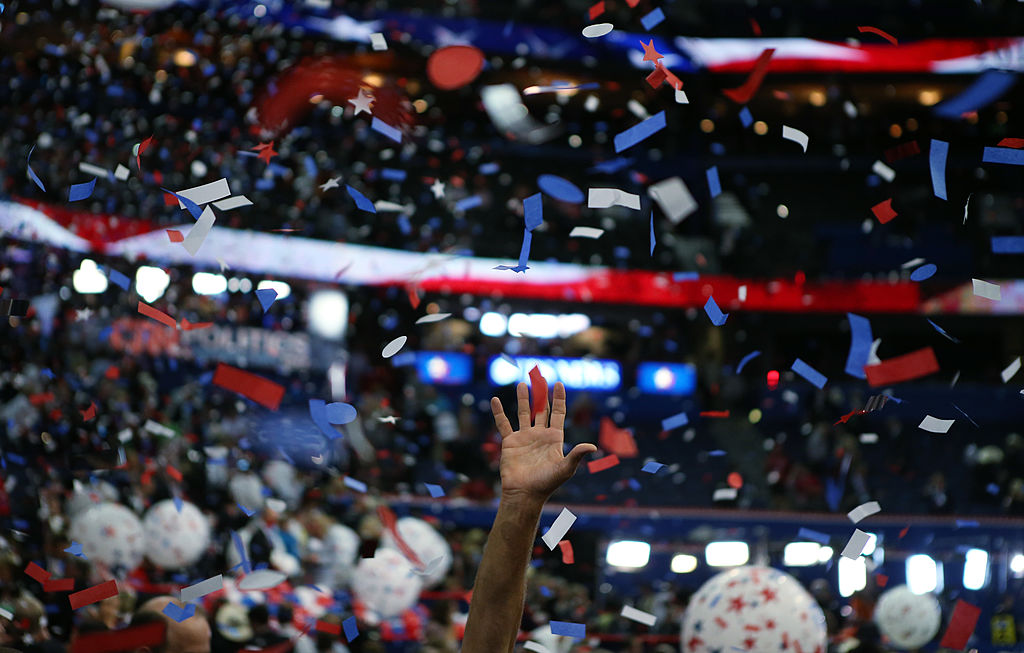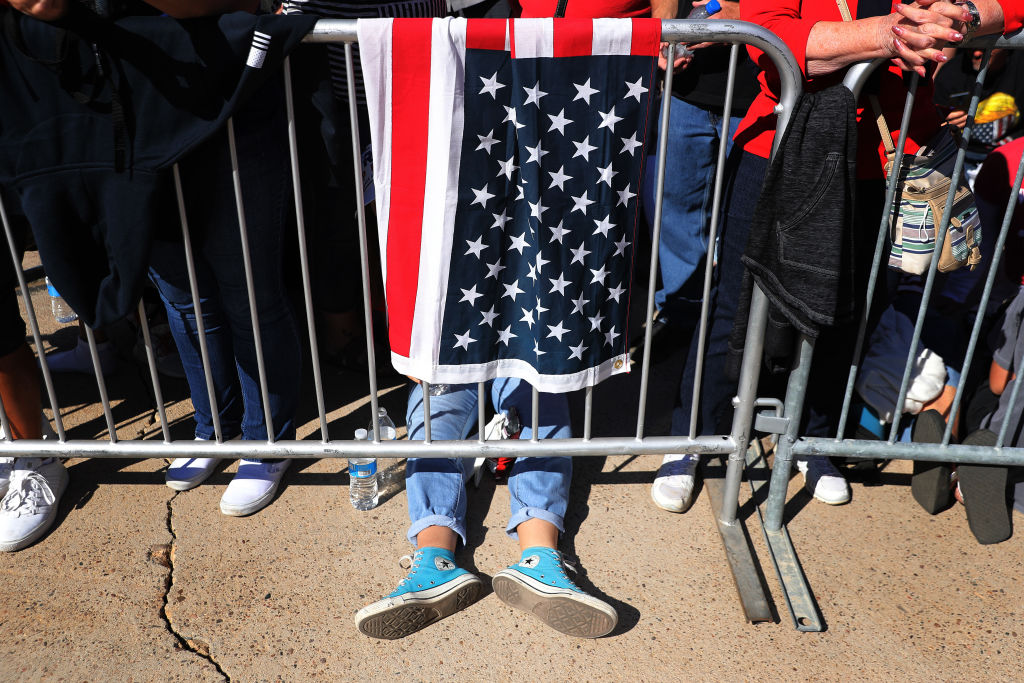Today voters in 14 states will cast ballots for a rapidly thinning field of Democratic Party presidential candidates. They will do so in the shadow of a potential pandemic and amid mounting economic uncertainty as the stock market ricochets with every health bulletin. But even before the coronavirus and Wall Street’s dramatic mood swings, many Americans have felt increasingly left behind in the decade since the Great Recession ended. They hear stories about prosperity and see others enjoying greater job opportunities – even while they and many of their neighbors find their already low and stagnant wages being devoured by inflation.
The following findings, excerpted from our reporting on three states participating in Super Tuesday (California, Minnesota and North Carolina), explain some of the reasons for this sense of isolation. For many people, today’s vote is a chance to speak up in a country in which they feel increasingly voiceless.
California
At a glance, California’s economy seems like it should be the envy of the nation. While the U.S. economy has grown 22 percent from 2009 to 2018, California’s grew 32 percent, according to the D.C.-based Economic Policy Institute. Its hot housing market has rebounded from 2009, when the value of the median house bottomed out, dropping nearly 60 percent in less than two years. Meanwhile, the state’s unemployment rate has reached a historic low.

At the same time, the bottom 20 percent of households saw their incomes fall by 1.8 percent when inflation is taken into account. As a result, by this metric inequality increased in California at nearly twice the national average. The increase in income inequality was larger than in all but three states, while the state is home to a vast unsheltered homeless population that accounts for 47 percent of the nation’s total. See “The Golden State of Inequality” and “What Will California’s Rising Voters Decide?”
* * *
Minnesota
Some Minnesotans have benefited from post-recession growth more than others. The richest five percent saw their incomes rise by 17.6 percent during that period while the poorest 20 percent saw their incomes increase only 5.8 percent, according to the Economic Policy Institute.
The state’s poverty rate (27.2 percent) for African Americans is almost four times the white poverty rate (7 percent) and the poverty rate for indigenous Minnesotans is even higher, at 33.8 percent. The poverty rate for Latinos is 18.7 percent, according to the most recent U.S. Census data. The state ranks toward the bottom in terms of racial equity in earnings (41st) and in unemployment (44th). See “The Minnesota Paradox.”
* * *
North Carolina
As with many states in the country, North Carolina’s historically low unemployment rate – 3.7 percent in December – conceals trouble: persistent racial disparities, the geographic isolation of low income and struggling rural communities, and an affordable housing crisis.

But unlike the rest of the country, North Carolina has also seen a growth in the percentage of people living in or near poverty. The proportion of people living below twice the poverty level – $41,560 for a family of three in 2018 – grew to 33 percent between 2016 and 2018, a 2.6 percentage point increase, according to the Economic Policy Institute. (Nationally, the percentage living below twice the poverty level declined by 0.9 percent during the same period.) See “North Carolina’s Economy Works Better for Some.”
Top Photo: Chip Somodevilla/Getty Images
Copyright 2020 Capital & Main





